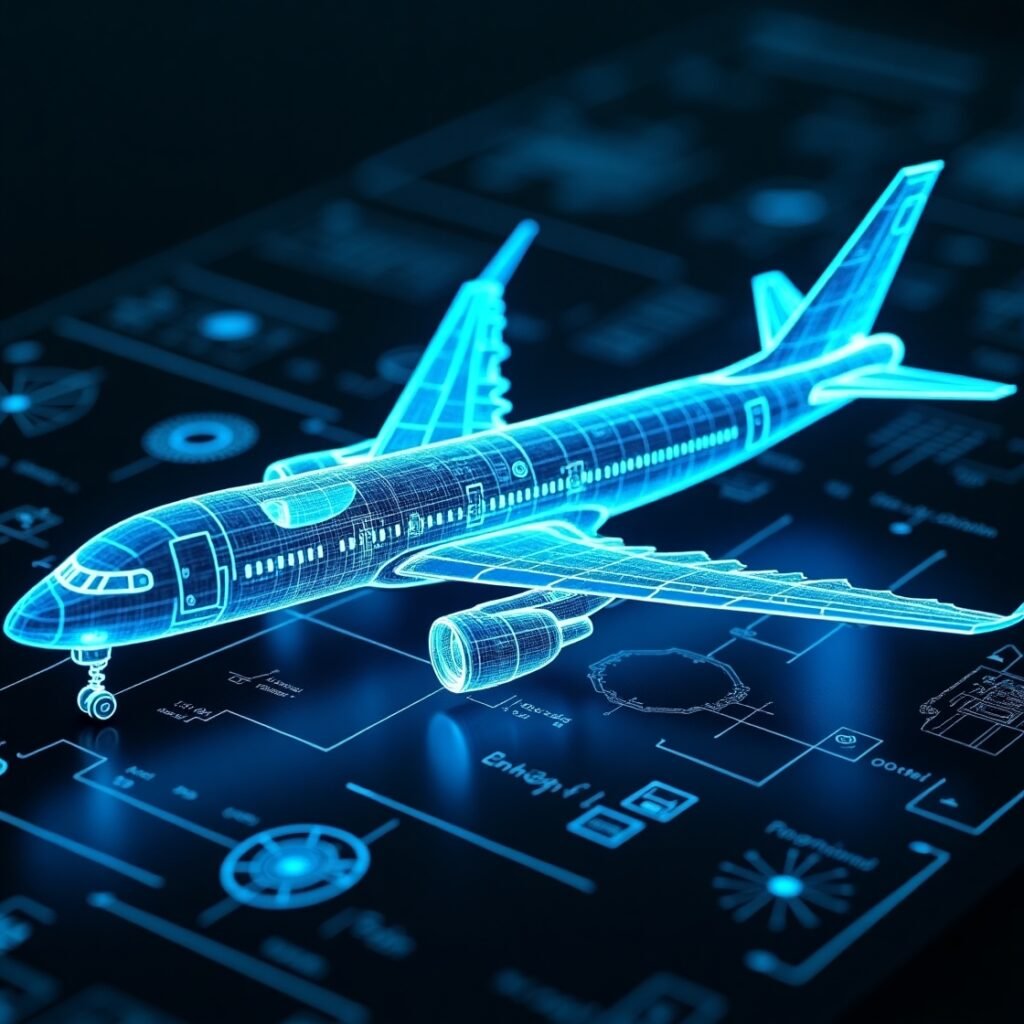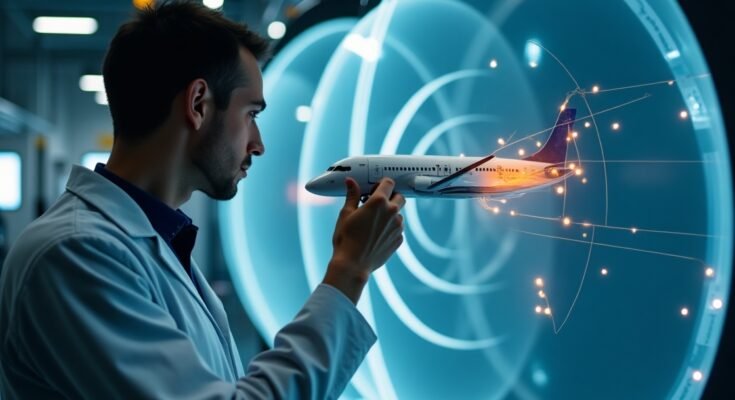Aeronautical engineering: is a dynamic, high-demand field that blends technology, innovation and aviation. Aeronautical engineers play an important role in developing aircraft and spacecraft, as well as improving air travel, space exploration, and the future of aviation in general. If you have a passion for flight, innovation, and engineering, aeronautical engineering can be a fulfilling and exciting career choice.
This guide contains:
- What is aeronautical engineering?
- Core subject areas and specializations
- Types of careers available
- Necessary skills and qualifications
- Average salary expectations
- Top universities & programs
- Aerospace industry trends
Frequently asked questions regarding aeronautical engineering
Understanding Aeronautical Engineering
Aeronautical engineering is a subgroup of aerospace engineering targeting mostly aircraft and their aspects (design, development, production, testing, etc.). Examples of this include commercial airliners, helicopters, jets, and unmanned aerial vehicles (UAVs).
Aerospace engineering covers two areas: aeronautical (aircraft within the atmosphere) and astronautical (spacecraft and satellites). While aeronautical engineering has aspects of astronautical engineering, its focus is primarily centered on air vehicles.
Some of the primary areas of study in aeronautical engineering include:
- Aerodynamics: This refers to the behavior of air as it interacts with solid objects, such as wings or the body of the aircraft.
- Propulsion systems: Jet engines and turbines and ways to optimize fuel consumption.
- Flight mechanics and control systems: Centered on stability, navigation and flying/controlling the aircraft.
- Materials science: Used for the development of lightweight and durable materials for aircraft.
- Structural analysis: Assessing airframes for safety and integrity.
- Avionics: Electronics and systems used for navigation, communication and flight control.

Aeronautical Engineering course: topics and specializations
Generally, it takes four years to obtain a bachelor’s degree in Aeronautical Engineering. In most courses, you will study both theory and practice in various disciplines.
- Core subjects include:
Engineering Mathematics - Fluid Mechanics
- Thermodynamics
- Aircraft Structure
- Propulsion System
- Flight Dynamics
- Control Engineering
- Computer Aided Design (CAD)
- Aerospace Material
- Avionics and Navigational Systems
- Common specializations include:
Aircraft Design - Aviation Safety
- Jet Propulsion
- Unmanned Aerial Vehicle (UAV) Technology
- Aeronautical Engineering Maintenance
- Avionics Engineering
Careers in Aeronautical Engineering
Aeronautical engineers are needed in both public and private sectors. Graduates can find opportunities in a variety of fields including:
- Commercial Aviation
Designing and enhancing aircraft for passenger commuter lines. Boeing, Airbus and Embraer are leaders in this area of work. - Defence and Military
Work on advanced fighter jets, unmanned aerial vehicles, and missile systems. Students may work with firms like Lockheed Martin, Northrop Grumman and national defence agencies. - Space
This is primarily the territory of astronautical engineers but aeronautical engineers may participate in parts of the systems used in the design of rockets, satellites, and space shuttle systems. - Research and Development
Government agencies like NASA, ISRO, and ESA may hire graduates for various research and testing roles for aerospace innovation and development. - Aircraft Maintenance
Evaluating aircraft to ensure the aircraft is in good repair and adheres to safety regulations. - Aviation Regulatory Bodies
The FAA (Federal Aviation Administration) and EASA (European Union Aviation Safety Agency) hire engineers to perform inspections, safety audits and other regulatory roles. - Unmanned Aerial Vehicles (Drones)
The burgeoning UAV field is seeking engineers for system design, artificial intelligence, and real-time control systems.

Necessary Skills to Succeed in Aeronautical Engineering
Aeronautical engineers need to have both hard and soft skills, in order to succeed in this industry that is both highly technical and demanding.
Hard Skills:
- Able to use software such as MATLAB, CATIA, AutoCAD, and ANSYS
- Strong knowledge of physics and applied mathematics
- Knowledge of fluid dynamics and thermodynamics
- Ability to read technical drawings and schematics
- Knowledge of manufacturing processes and materials
- Soft Skills:
Ability to work as part of a team, and have good communication skills. - Problem solving and analytical skills
- Creativity and innovation
- Good attention to detail
- Project management and leadership skills
Qualifications and Educational Pathway
To work as a professional aeronautical engineer, a defined educational pathway is needed.
Educational Pathway:
- High school (10+2): Physics, Chemistry and Mathematics (PCM)
- Bachelor’s degree (B.E./B.Tech in Aeronautical or Aerospace Engineering): 4 (four) years undergraduate program.
- Postgraduate/Master’s Degree (M.E./M.Tech/MSc): Not mandatory, but can be useful for specialist jobs/research.
- Ph.D in Aeronautical Engineering: For a career in Academia and cutting-edge Research & Development.
Qualifications and Certifications:
- Chartered Engineer (Country UK)
- FAA licenses for aircraft maintenance (U.S.)
- Certifications from Professional bodies (e.g ASME, SAE International etc.
- Best Aeronautical Engineering Universities
World-Reknow Institutions:
- Massachusetts Institute of Technology (MIT), USA
- Stanford University, USA
- University of Cambridge, UK
- Imperial College London, UK
- ETH Zurich, Switzerland
- National University of Singapore (NUS)
Best in India:
- Indian Institutes of Technology (IIT) Bombay, Kanpur, Madras
- Indian Institute of Space Science and Technology (IIST)
- Hindustan Institute of Technology and Science (HITS)
- Manipal Institute of Technology
- Anna University
Aeronautical Engineering Salary Expectations
Aeronautical engineers are one of the higher-paid engineering professions, but pay does vary depending on experience, location, and industry.
Average pay by region:
- United States: $85,000 – $125,000 a year
- United Kingdom: £35,000 – £65,000 a year
- India: ₹6 – 20 lakhs a year
- UAE / Gulf States: AED 120,000 – 240,000 a year
Also, as aeronautical engineers gain experience and specialized skills, they can move into senior positions, such as Aerospace Project Manager, Head of Design, or Flight Test Engineer with much higher pay rates.
Future Trends and Innovations:
- Aeronautical engineering: as a field is constantly changing and improving. Some trends and innovations that will impact aeronautical engineering include:
- Electric Aircraft: These will increasingly be battery-powered, allowing the industry to reduce its carbon footprint while still providing air travel.
- Supersonic Travel: The return of supersonic passenger travel will be fueled by sustainable fuels and better aerodynamics.
- Green is the New Black: Sustainable aviation fuel (SAF) and eco-friendly building materials are coming into the aviation field.
- You Call it AI, We Call it Flight System Automation: Use of artificial intelligence to help with automation and predictive maintenance.
- Urban Air Mobility (UAM): Air taxis and VTOL (Vertical Take-Off and Landing) aircraft.
- Space Tourism and Commercial Flights: Aeronautical engineers will support the evolution of the new generation suborbital space travel.
The innovative changes brought by electric aircraft, UAM, and Space Tourism will certainly provide a bright future for those interested in becoming an aeronautical engineer and are passionate about technology, sustainability, and global mobility.
Frequently Asked Questions (FAQs)
Q1. Is aeronautical engineering difficult?
Yes, it is a demanding field that requires technical and analytical skills. With hard work and a passion for aviation, the subject is immensely rewarding.
Q2. What is the difference between aeronautical and aerospace engineering?
Aeronautical engineering is concerned with aircraft operating in Earth’s atmosphere. Aerospace engineering covers both aeronautical and astronautical (spacecraft) disciplines.
Q3. Is coding valuable in aeronautical engineering?
Yes, learning some programming languages (such as Python, C++, or MATLAB) is beneficial in some aspects of the aeronautical field, particularly in simulation, modelling, and system automation.
Q4. Which country is best for studying aeronautical engineering?
Some of the best countries for studying aeronautical engineering are the U.S., UK, Germany, and Singapore due to their cutting-edge aerospace industries and universities.
Q5. Can I fly a plane after studying aeronautical engineering?
Yes, many aeronautical engineers pursue a private pilot’s license after completing their studies, as their understanding of aircraft components and flight systems provide a solid foundation for flying.
Conclusion
Aeronautical engineering offers an exciting and rewarding career option for students, engineers, and those who are just passionate about aviation, technology, and innovation. The world is demanding more advanced aircraft for various purposes, greener options for flying, and new air vehicle types like UAVs, so aeronautical engineering not only seems to have job security but offers meaningful opportunities to help advance the state of humanity in the air.
Whether you are a new student looking for career opportunities or a network engineer looking to broaden your horizons, aeronautics is a field to assess. With the right mix of educational experience, skills, and positivity or passion, the sky is not the limit but the beginning.



One Comment on “Aeronautical Engineering: A Complete Guide to Careers, Scope, and Future Prospects”